Is juicing bad? Here are the top 5 dangers of juicing.
We’ve all heard about the benefits of juicing – from healthier skin to increased energy, the fact that it can promote weight loss, strengthen your bones, prevent disease and cleanse and detoxify your body - but what about the dangers of juicing?
With all the hype around celebrities who endorse juicing such as Jennifer Anniston, Salma Hayek (who started her own juicing company), Jared Leto and Gwyneth Paltrow among others, it’s increasingly difficult to piece together the facts around juicing from the fiction.
What’s more, many of the concerns raised about the dangers of juicing address an all-fruit juice diet, a juice fast or even store-bought juice, but most of us just like to combine juicing as part of a healthy diet and get those organic fresh veggies in.
I’ve put together the top 5 dangers of juicing along with some information that addresses these concerns – so you can make an educated decision about what level of juicing is right for you.
1. High
sugar content and weight gain
"Juice" has been associated with an increased risk of Type-2 diabetes and even long-term weight gain. But not all juices are created equal. There’s a big difference between store-bought pasteurised juices (the heat from the pasteurisation kills the enzymes) and fresh juice you make from scratch, for example. These studies are not referring to juicing fresh fruit and veggies, but store bought juices that many times are not juice at all.
Because juice doesn’t have the fiber contained in whole fruits and vegetables, your body absorbs fructose sugar more easily, which can cause your blood sugar levels to spike. The remedy to this is to juice more green juices and use low sugar or no fruit. Eat or blend your fruit instead.
The fiber is also what makes you feel full – so you might actually end up taking in more calories than you should, after all, it takes a lot less effort to down a glass of orange juice than it does to eat 5 oranges!
And if you only juice fruits – the calories and natural sugars in fruit can add up and you might even gain weight instead of losing it.
Most vegetables however, contain less calories and sugar than fruits – so consider juicing some veggies along with your fruit to reduce the calories and sugars you’ll consume while enhancing the overall nutrient content.
Add a quick dose of fiber by chucking some of the fruit and/or veggie pulp back in your juice. It’ll also keep you full for longer.
2. Fasting Flops
Much of the dangers of juicing affect those who do juice fasts (drinking only juice for extended periods of time – and often only one type of juice).
Juice fasting can leave you feeling lighter, happier and more focused, it’s a powerful detoxer, can lead to weight loss and increased mental clarity. Juice fasts normally last for between one, two, three, or more days (you can fast up to 10 days or more), while some people fast one day each week to give their digestive system a break.
The downside of juice fasting is that, depending on the person, any pre-existing conditions and the duration of the fast, there can be some adverse effects. Doctors advise that those who suffer from diabetes, anaemia, eating disorders, nutritional deficiencies, kidney problems, hypoglycaemia or undergoing chemotherapy, and women who are pregnant or nursing, should not juice fast. However, keep in mind that juice fasts have been around for a very long time and have been used by natural practitioners to help your body cleanse and remove toxins that promote disease.
Juice fasts often lack protein and fat (particularly all-fruit ones). Without sufficient protein, the body can’t build new tissue. Without sufficient fats, your skin and hair will suffer. However, keep in mind that your body stores protein and you also get it from greens in juices.
Longer fasts could result in electrolyte imbalances, and if you’re not getting enough calories over a long time, your body may start using muscle tissue instead of fat for energy and burning fewer calories overall. A liquid diet may make you lose weight in the short term, but could mess up your metabolism.
So, if the dangers of juicing are so severe, why is juice fasting so popular? I believe, like many others, that it can heal all kinds of diseases including cancer, while some celebs even credit their younger looks to juice fasting. It’s these kinds of alluring benefits that ensure juice fasting remains in the press.
I recommend consulting with your doctor or natural healthcare practitioner before beginning a juice fast – everyone is different and it's best to get advice first. You can even do supervised fasting at special retreats with doctors on hand to monitor the situation.
As for protein and fat – well you can blend avocado for those essential fatty acids and lots of greens including kale and spinach for that extra dose of protein.
You don’t have to go on a juice fast to be healthy if it worries you. Have a glass of fresh juice (green juice made mostly from veggies with some fruit to add flavour is best) as a regular part of a healthy diet and you’ll get all those health benefits. If you’re really keen on juice fasting – make sure you do it with medical supervision- and know that hundreds of thousands of people have done it with really great results. If you want more information on juice cleansing, check out our Juice Cleanse Reset package.
3. Food-borne illness, pesticides and GMO
Raw produce is more nutritious than cooked, because none of the nutrients in raw produce have been destroyed by heat. Juicing raw fruits and veggies preserves all their vitamins, minerals, enzymes and natural goodness.
But raw fruit and vegetables can be contaminated with disease-causing micro-organisms and pesticides – leading to food-borne illness.
Store-bought fruit juices that stay on the shelves for a long time are pasteurized to kill these dangerous organisms (which simultaneously also kills all the beneficial enzymes) whereas the fresh, raw juice you make at home or buy at juice bars can become a breeding ground for bacteria.
The raw produce you use may also contain pesticides or be genetically-modified, which involves the addition of foreign genes (that would not occur nature) to improve taste, yield or disease resistance. Scarily enough, the long-term health consequences of eating GMO’s or high levels of pesticides are still relatively unknown.
The solution? Drink fresh, juice made from organic, raw fruit and vegetables and keep any left-overs in a sealed container in the fridge. Personally I try and drink all my juice within a day of making it just to be on the safe side. This danger is the same with regular food you eat every day. Organic, clean and non-contaminated food should always be at the top of your list.
5. Dental issues
As we’ve already established, fruit juice naturally contains sugar (and store-bought juices contain even more added sugar). In fact, a fruit juice can contain more sugar than a soda. This sugar is not equal. Soda has corn syrup and white sugar. That is not exactly the same as fruit sugar.
This sugar is consumed by the bacteria in the mouth and converted to an acid that can wear away tooth enamel and lead to cavities. Dental plaque is the build-up of this bacteria on the tooth surface.
However, studies attempting to prove the link between fruit juice and tooth decay are by no means conclusive.
A far-reaching study by the American Dental Association found no link between juice and tooth decay among pre-schoolers who drank 100% fruit juice. So, the jury is still out on this one and the safest best is to practice good dental care.
Make sure you drink your juice through a straw and brush and floss your teeth regularly.
Some dentists recommend waiting half an hour after your juice to begin brushing because your enamel will be less likely to wear away (acid softens our enamel so much that if we brush right away we can literally brush away some of our teeth).
Drinking juice quickly is also better than sipping at it slowly over the day. After your juice, drink some water to help neutralise any acid that may remain in your mouth. I also like to use a glass straw.
Adding some fiber back into your juice can help increase saliva flow, which is a natural defence against cavities – washing away food particles and neutralising the acids from attacking your teeth.
Fluoride may lessen the effects of fruit juice on teeth (though studies about the harmful effects of fluoride also exist) so brushing with fluoride toothpaste may be helpful.
Fruit juice has so many benefits that offset the dangers of juicing, so ensure that your commitment to greater health is not foiled by practicing good dental hygiene and visiting your dentist for regular check-ups.
5. Potential health problems
Nearly every health authority recommends that we get six to eight servings of fruit and vegetables a day – and nearly every one of us doesn’t even get close to that! Juicing is a way to virtually guarantee that you’ll reach those targets.
However, one of the main dangers of juicing is that it can lead to potential health issues – particularly for those who are currently taking medication or who have certain pre-existing conditions.
For instance, the high levels of potassium and minerals from excessive juice consumption can build up to dangerous levels in the blood for those with kidney disease. And the high levels of antioxidants and low protein content of juice can potentially be dangerous for those undergoing chemotherapy.
The Vitamin K content of greens including kale, spinach, collards, chard, parsley and mustard greens can interact negatively with those on blood thinning medication such as warfarin (lowering its anti-clogging abilities).
Grapefruit juice can be dangerous for those on cholesterol-lowering drugs (blocking absorption).
Oxalic acid (found in parsley, spinach, bananas, beetroot, chard and star fruit) binds with calcium to form oxalate crystals that can cause irritation of the kidneys (and even kidney stones), irritate the mouth and intestinal tract and block absorption of iron and calcium.
Gout, osteoporosis, kidney disorders and rheumatic arthritis can be aggravated by oxalic acid. Always drink plenty of water to prevent the formation of oxalate crystals.
Others should avoid juicing cruciferous vegetables (cabbage, collards, bok choy, kale and broccoli) because they are goitrogenic, meaning they can suppress thyroid function if eaten raw.
These vegetables may also cause gas, bloating and stomach upset – so those suffering from these issues may benefit more from eating them cooked or steamed (which deactivates the goitrogens).
Meanwhile sorbitol, a natural occurring sugar in some fruits (peaches, pears, cherries, apples and prunes) can cause stomach issues and diarrhoea.
It really does sound quite scary. But even with these top 5 dangers of juicing, the nutrients obtained by juicing outweigh the risks.
Juicing helps your body absorb and metabolize the many vitamins and minerals that fight disease and support greater health.
While people with certain medical conditions need to be aware of the risks of juicing certain foods, juicing is an easy way to maintain health and prevent disease as part of a healthy diet.
Juicing basics > Dangers of juicing
YOUR JUICER-IN-CHIEF
|
Hi Juice Lover! I'm Vanessa, the Juicing Mixologist. I'll be guiding you to radical wellness and hotness you can chug. Learn more |
ULTRA POPULAR POSTS
My favorite must-have wellness gadgets
Why the Vitamix is the best blender
Find top juicers that fit your style
How to make green drinks that taste good
The difference between juicing and blending
The need to know steps on how to start juicing
|
Took my BP today. It was lower than its ever been. It's that juicing! Love it! I also don't feel like I need my daily coffee pick me up! Feeling great. Nancy, Las Vegas |
|
This is the best site ever. Seth, Vancouver, Canada |
|
I've recently lost 10 pounds by using the weekend weight loss plan. Jan G, New Mexico |
|
I have no questions. Jeff, California |
|
ALL of the recipes have been winners. We honestly look forward to each days new concoction. Thanks! Sue, Denver |
|
I enjoy your emails; Alex, Chicago |
 The Juice Club
The Juice Club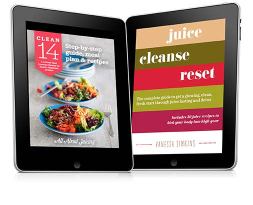 Live Group Supported Cleanses
Live Group Supported Cleanses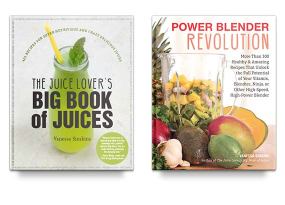 Vanessa's Paperback Books
Vanessa's Paperback Books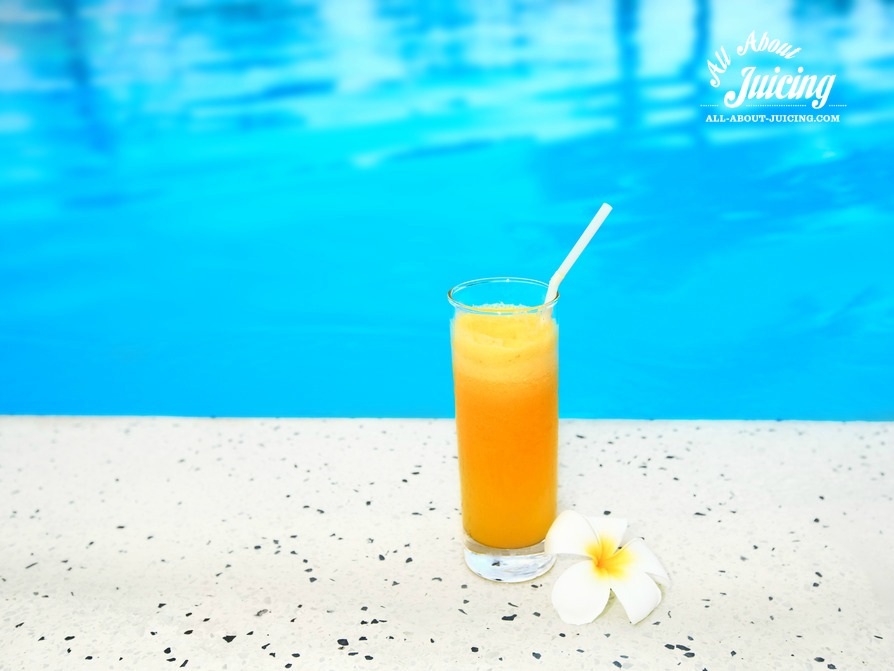





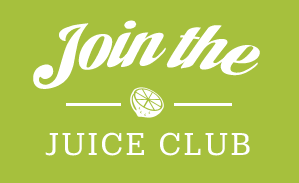
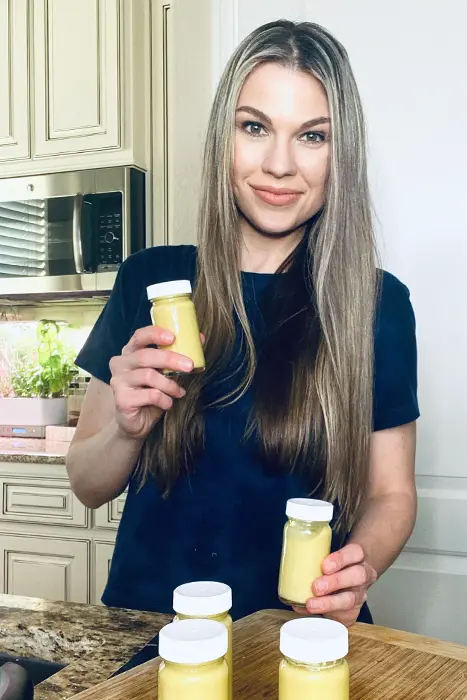


Lovin' this juicy info? Leave a comment in the box below